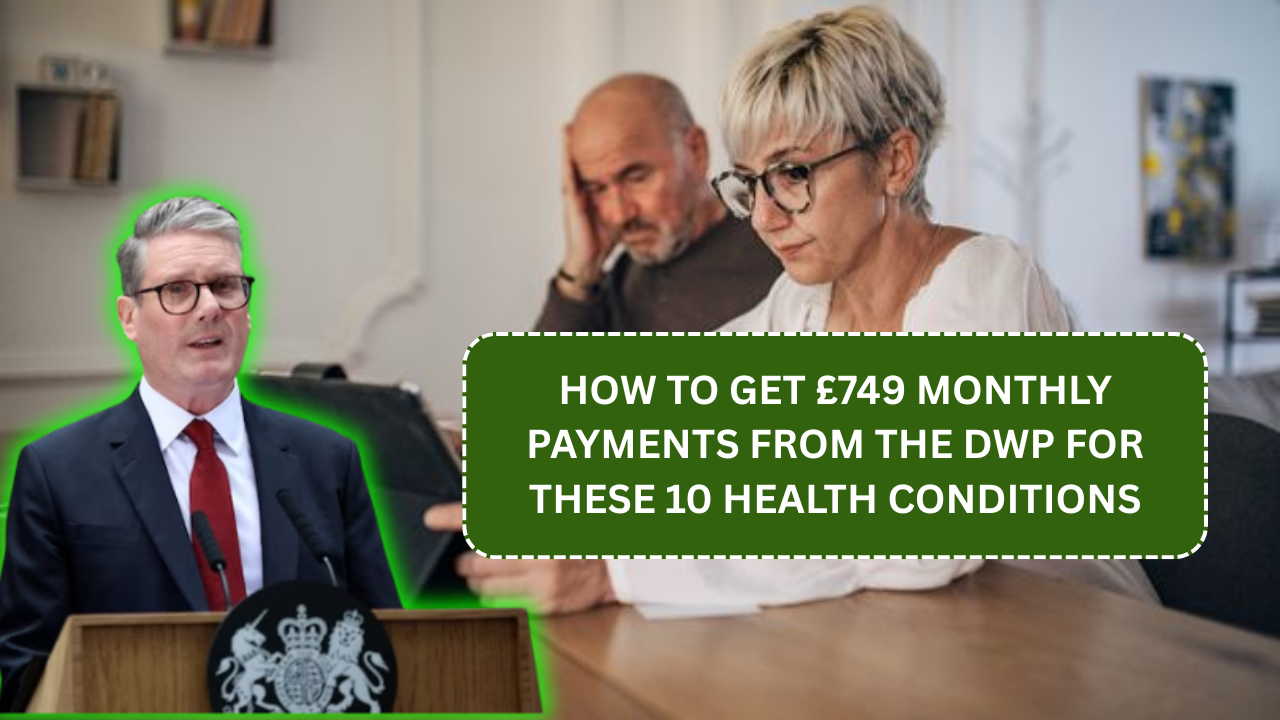The Department for Work and Pensions (DWP) in the UK offers crucial financial support to those living with long-term health conditions or disabilities. One of the key forms of support available is the Personal Independence Payment (PIP), which can provide up to £749 a month for eligible individuals. Here’s everything you need to know about how you can qualify for this payment and which health conditions typically qualify.
What is Personal Independence Payment (PIP)?
PIP is a benefit provided by the UK government to help individuals with the extra costs associated with long-term health conditions or disabilities. Unlike other benefits, PIP is not means-tested, meaning it does not depend on your income or savings. Instead, it is based on how your condition affects your ability to carry out everyday tasks and get around.
The maximum monthly payment for PIP can be up to £749.80 when both the daily living and mobility components are paid at the highest rate. The amount you receive depends on the severity of your condition and the level of support you need.
Breakdown of PIP Payments
PIP consists of two parts:
- Daily Living Component: This part is designed to assist with daily activities such as preparing food, managing personal care, and engaging with others. The payment for the daily living component can be:
- Enhanced Rate: £87.65 per week
- Standard Rate: £61.85 per week
- Mobility Component: This part is for individuals who have difficulty getting around. It helps with the costs associated with travel, and the payment for the mobility component can be:
- Enhanced Rate: £64.50 per week
- Standard Rate: £24.45 per week
When both components are awarded at the highest rates, the total monthly payment reaches £749.80.
Common Health Conditions That Qualify for PIP
The following health conditions are commonly associated with successful PIP claims:
- Psychiatric Disorders: This includes conditions like anxiety, depression, bipolar disorder, and schizophrenia. These conditions can significantly impact daily living, making it difficult for individuals to perform routine tasks.
- Musculoskeletal Diseases: Chronic conditions like arthritis, back pain, and fibromyalgia often result in pain and limited mobility, which may qualify individuals for PIP.
- Neurological Disorders: Conditions such as Parkinson’s disease, multiple sclerosis (MS), and epilepsy affect the brain and nervous system, potentially hindering movement and communication.
- Respiratory Diseases: People with chronic obstructive pulmonary disease (COPD), asthma, or other severe breathing problems may qualify for PIP due to difficulty with mobility and self-care.
- Chronic Pain Conditions: Conditions such as complex regional pain syndrome (CRPS) and endometriosis can cause debilitating pain, significantly affecting a person’s quality of life.
Eligibility for PIP
To qualify for PIP, applicants must meet the following criteria:
- Age: You must be aged between 16 and the State Pension age.
- Health Condition: Your health condition or disability must affect your daily living or mobility for at least 3 months and be expected to last for at least 9 months.
- Residency: You must live in Great Britain, or have lived there for at least 2 of the last 3 years.
- Assessment: You must be assessed to determine how your condition affects your life. This usually involves filling out a form about your condition and attending an assessment with a healthcare professional.
How to Apply for PIP
The application process for PIP involves the following steps:
- Call the DWP: You can begin your application by calling the PIP claim line. The DWP will ask for details about your condition and send you a claim form.
- Complete the Claim Form: The form asks you to explain how your condition affects your daily life and mobility. Be thorough in your responses.
- Assessment: After submitting your form, you may be asked to attend an assessment where a healthcare professional will evaluate how your condition impacts your daily activities.
- Decision: Once the assessment is complete, the DWP will send you a decision letter outlining whether you qualify for PIP and the level of payment.
PIP and Fluctuating Conditions
For conditions that fluctuate or vary in severity, such as mental health disorders or chronic pain, it can be challenging to meet the requirement of a “constant” condition. However, PIP is designed to take into account the unpredictability of these conditions. The assessment focuses on how your health condition affects you on most days.
How Much Can You Get?
The total amount you can receive depends on the severity of your condition and whether you qualify for both the daily living and mobility components. If both are awarded at the highest rates, you could receive £749.80 per month.
Recent Changes to PIP and Eligibility
In recent months, the UK government has proposed changes to the PIP system, including stricter eligibility criteria and assessments. These changes could impact individuals with conditions that fluctuate, and some people may find it harder to qualify for the enhanced rates.
To stay informed on these changes, it is important to keep an eye on updates from the DWP and related government bodies. You can learn more about PIP and the application process by visiting the official GOV.UK PIP page.
Conclusion
If you suffer from a long-term health condition or disability, PIP can provide vital financial support to help with the extra costs you face. With the right evidence and information, individuals with a variety of conditions can qualify for monthly payments that can help them live more independently. For more detailed guidance on eligibility and the application process, visit the GOV.UK PIP page or call the DWP PIP helpline.
Nand Kishor is a content writer covering business, economy, and world affairs. With a background in journalism, he focuses on clear, ethical, and insightful reporting. Outside of work, he enjoys chess, cricket, and writing short stories.
